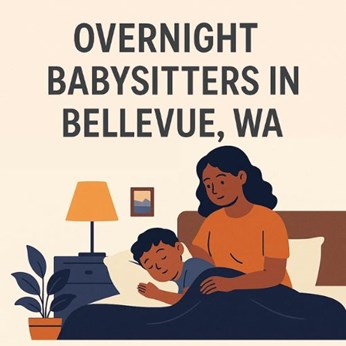Asthma in Children - Facts, symptoms and treatment
Asthma is a condition affecting the airways that carry air to and from the lungs, with the airways becoming sensitive, irritated and narrowed by triggers like colds and flu, smoke, pollen, pet dust, house dust mites and environment pollutants like high pollution, cigarette smoke and sudden changes in the weather conditions. The lining of the airways produces sticky mucus that makes it difficult for the air to pass in and out and causes a wheezing sound.
A diagnostic tool known as peak flow meter is used to diagnose asthma, but it is not suitable for children below the age of 6 as many children below the age of 5 suffer from some wheezing and chest infection, with the GP confirming the diagnosis with the help of record of symptoms and triggers. It would be appropriate at this stage to understand the signs and symptoms of asthma in young children.
Look out for the following symptoms of asthma in young children:
Coughing particularly at night that is aggravated after exercise
Wheezing, crackling or whistling sound in the chest.
Trouble in breathing with shortness of breath especially when active
There could be a tight or uncomfortable feeling in the chest.
Recurring bronchitis

In emergency situations, the child could be gasping for breath, with the abdomen being sucked under the ribs. The child could also find it speak because of restricted breathing, calling for prompt medical attention.
It is found that some children below the age of 5 have a few day-to-day symptoms, with severe asthmatic attacks from time to time, while others may have persistent symptoms that get worse by activities or triggers like cigarette smoke, cold and other respiratory infections and seasonal allergies. Colds and other respiratory infections for asthmatic children last longer than others. Asthmatic infants would be slow in feeding with shortness of breath, while toddlers and little older children may experience a decreased desire to play due to being fatigued easily or getting breathless or coughing.
It is to be best understood that most children develop asthma symptoms by the age of 5, with an early diagnosis being extremely important. Prompt treatment for asthma before the age of 5 improves the child’s day-to-day breathing, reduces asthma flare-ups and also reduces other problems caused by asthma.
It is also found that the diagnosis and treatment of asthma varies with age and from child to child, with the symptoms getting worse or better with time. It would help to maintain a written asthma action plan to keep asthma symptoms to the minimum, track symptoms and adjust treatment. As it is best to treat asthma early, it would help to avoid its triggers.
Avoid triggers like:
Do not smoke either during pregnancy or afterwards and don’t let anyone smoke in the house.
Protect infants by breastfeeding for at least the first 4 months.
Avoid keeping furry and feathery pets at least for the first year of a child’s life.
Avoid or cut down on the exposure to known allergens like house dust mites, pollen and cats during pregnancy and during the first year of a baby’s life.

If your child is diagnosed with asthma, learn all about the triggers and not only avoid them, but also get into the routine to use the prescribed medicines and review how well you can control the symptoms from time to time with your general practitioner. It is to be understood that long term lung damage can be prevented by treating asthma as soon as it is diagnosed.
Doctors would prescribe the following medications:
Relievers like Ventolin and Bricanyl; medicines that when inhaled by your child during the attacks helps relax the muscles around the airways and facilitates easy breathing.
Preventers also inhalers like Becotide, Pulmicort and Flixotide that when used daily stops the airways from being over-sensitive to asthma triggers. Containing a small dose of steroids, these medicines act on the lungs only.
These medicines are best given to young children below 5 years by using an inhaler inside a spacer to facilitate easy mixing of the medicine with the air in the chamber that is breathed into the lungs; your GP would be the best person to advice you regarding the use of a spacer.
It would help to take long-term control medications also known as maintenance medications that help control persistent asthma; they can also be taken seasonally if the child’s asthma symptoms worsen during certain times of the year.

Some long-term control medications include:
Inhaled corticosteroids or anti-inflammatory drugs include fluticasone (Flovent HFA), budesonide (Pulmicort Flexhaler), mometasone (Asmanex) and beclomethasone (Qvar) are most common medications that work best for young children.
Leukotriene modifiers, such as montelukast (Singulair) can be complimented with inhaled corticosteroids; in rare cases leukotriene modifiers could lead to psychological reactions such as agitation, aggression, hallucinations, depression and suicidal thinking, requiring urgent medical advice.
Cromolyn, it acts as a preventive for mild and moderate asthma attacks.
Theophylline, a daily medication that opens the airways, relaxes the muscles around them and facilitates easy breathing; this medication is used rarely today.
Combination inhalers, an inhaled corticosteroid plus a long-acting beta agonist like fluticasone-salmeterol (Advair), budesonide-formoterol (Symbicort) and mometasone-formoterol (Dulera)that is used in severe attacks of asthma. Long-acting beta agonist or LABA should only be given to children along with a corticosteroid in a combination inhaler.
To conclude a very important part of managing your child’s asthma is to learn all about it and also the purpose of each part of the monitoring and treatment. Parents need to understand different type of medications and how they work and how to recognize and record signs and symptoms of worsening asthma. Most importantly parents need to know what to do when their child’s asthma gets worse.
Image Courtesy: Google
Take the next step toward your goals
Share your requirement and find the best care providers in your area
-
Looking for a caretaker’s job? Build your profile and get in touch with families in your vicinity.
-
Discover nannies, babysitters, cooks, housekeepers, pet sitters, and elder care under one roof.
-
Get all the support you need to run a successful care center.
-
Search for appropriate centers near you depending on your needs.
Care Corner Insights: Blog Library

Overnight Babysitters in Bellevue, WA for Business-Travelling NRI Parents: Safety & Policies
For many NRI parents living in Bellevue, WA, frequent business trips are a reality. While traveling, one of the biggest concerns is ensuring your children are safe, cared for, and emotionally supported during overnight stays. Overnight babysitters ca

Indian Home-Style Cooks in Queens, NY: Tiffin-Style Weekly Meal Prep from Your Kitchen
Queens, NY, is home to one of the most diverse food cultures in the country, and Indian cuisine holds a special place among families looking for authentic, comforting meals. While restaurant takeout is convenient, nothing compares to the taste and nu

Baby Sleep Problems: What is Sleep Regression and How to Handle It
If you’re a parent, you know that baby sleep is one of the greatest mysteries of life. One day your little one is snoozing like an angel, and the next day they’re suddenly waking up every hour, fussing, or refusing to nap. Before you panic, there’s a

What is Validation Therapy? A New Approach to Dementia Care
Caring for loved ones with dementia is one of the most emotionally challenging journeys a family can face. Traditional methods often focus on correcting memory lapses or redirecting confused thoughts—but that can sometimes lead to frustration, stress

What is a Part-Time Nanny and Do You Need One
Parenting is a beautiful journey, but let’s be honest—it can also be exhausting! Between work deadlines, household chores, and family responsibilities, sometimes there just aren’t enough hours in a day. That’s where part-time nannies step in, offerin

Part-Time Housekeeper Hiring in Alpharetta, GA: Weekly Schedules, Pricing, and Must-Do Tasks
Keeping a home spotless while balancing work, family, and personal commitments can be overwhelming. For families and professionals in Alpharetta, GA, hiring a part-time housekeeper is one of the most practical solutions. Whether you need help once a

Affordable Daycares in Irving, TX with Indian Menu Options: Parent Reviews & Enrollment Tips
Finding the right daycare for your little one is never an easy decision—especially if you’re looking for one that fits your budget and offers familiar food options like an Indian-inspired menu. For parents in Irving, TX, the good news is that several

Can Babies Sleep on Their Side? Tips for Safe Baby Sleep
When it comes to newborns, every parent worries about the smallest details—how they sleep, what they wear, even which way they turn their tiny heads. One common question that pops up is: “Can babies sleep on their side?” The short answer? Not recom

8 Benefits of Hiring a House Cleaner for Your Home
Let’s be honest — keeping a home sparkling clean while juggling work, family, and daily life can feel like a full-time job in itself. That’s where professional house cleaners step in, turning the chaos into calm. If you’ve been debating whether to br

How to Care for a Gassy Baby? What’s Normal and what’s not – Expert Advice
If you’re a new parent navigating the world of burps, bubbles, and baby fussiness—welcome to the club! Gas in babies is incredibly common, especially in the first few months. But how do you know what’s normal and when it’s time to call in expert help